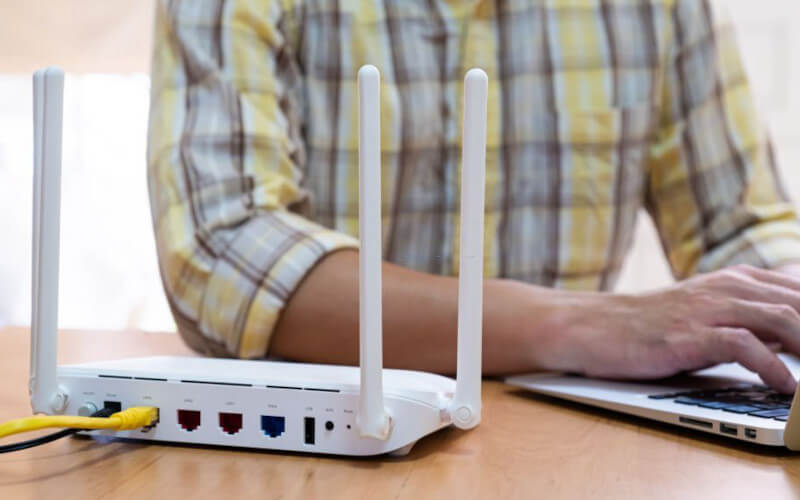While a gateway and a router may seem similar at first glance, they serve very different purposes in a network setup. In this article, I’ll explain the difference between a gateway and a router, including the pros and cons of each one.
What is a Gateway?
A gateway is a device that connects two networks, allowing them to communicate with each other. It acts as a bridge between these two networks, allowing devices on one network to reach devices on the other.
One typical example of a gateway is a broadband gateway, which connects a local area network (LAN) to the Internet. This type of gateway typically combines a router, a modem, and a switch in one device, allowing it to handle both the routing of data and the connection to the Internet.
Pros of a Gateway:
- Consolidation: As mentioned above, a gateway can combine multiple networking devices into one, making it a more cost-effective and space-saving solution.
- Simplicity: A gateway is generally easier to set up and manage than separate networking devices.
- All-in-one solution: A gateway can provide all the necessary networking functions in one device, making it a convenient choice for small networks.
Cons of a Gateway:
- Limited flexibility: Because a gateway combines multiple networking functions into one device, it may not be as customizable as separate devices.
- Limited scalability: A gateway is generally designed for smaller networks and may not be able to handle the demands of a more extensive network.
What is a Router?
A router is a networking device that forwards data packets between computer networks. It uses routing tables and protocols to determine the best path for the data to take, ensuring it reaches its destination efficiently.
Routers are commonly used to connect multiple devices to a single Internet connection, allowing all devices to access the Internet simultaneously. They can also connect two or more local area networks (LANs), creating a larger network.
Pros of a Router:
- Greater flexibility: Routers allow you to customize your network more than a gateway, giving you more control over how your devices connect and communicate.
- Better scalability: Routers are designed to handle a larger number of devices and a greater volume of data, so they are generally more suited to larger networks.
- Security: Many routers include built-in security features, such as firewalls and virtual private network (VPN) support, which can help protect your network from external threats.
Cons of a Router:
- More complex to set up: Routers can be more complex to set up and manage than a gateway, especially for those less familiar with networking.
- Separate devices required: To use a router, you’ll need separate devices for the modem and the switch, which can increase the cost and complexity of your network setup.
Gateway vs Router: Which is Right for You?
When choosing between a gateway and a router, there are a few key factors to consider.
Size of the Network
A gateway may be more straightforward and cost-effective if you have a small network with only a few devices. However, a router may be better if you have a larger network with many devices due to its greater scalability and flexibility.
Available Resources
If you have limited space or budget, a gateway may be a more attractive option due to its consolidating multiple devices into one.
On the other hand, if you have more resources available and are willing to invest in separate networking devices, a router may be a better choice due to its greater customization options and security features.
Type of Connection
If you need to connect to the Internet, a gateway is the better choice as it includes a modem to handle the connection. A router will be the better option if you need to connect multiple local area networks.
Ease of Use
If you’re uncomfortable with setting up and managing complex networking devices, a gateway may be the more user-friendly option due to its simplicity.
However, if you’re willing to put in the time to learn about networking and are looking for more advanced features, a router may be the better choice.
Conclusion
A gateway is a device that connects two networks, while a router is a device that forwards data packets between computer networks.
Both have pros and cons, and the right choice for you will depend on the size and needs of your network, as well as your available resources and level of comfort with networking. Getting a gateway or a router will depend on what you need.






